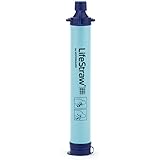Alberta expected to welcome more international students, as other provinces see cuts
Alberta’s universities are expected to welcome more international students to campus, even as schools in other provinces plan for lower international student enrolment.
The federal government has released provincial and territorial allocations for the first year of its two-year cap on international student permits.
Each province and territory is allowed to receive a set number of study permit applications, based on population.
Alberta, which welcomed fewer than its proportional share of international students last year, is entitled to 40,894 undergraduate study permit applications in 2024.
The application quota for each province is based on the national study permit approval rate of 60 per cent.
Ottawa is expected to approve 24,537 new international study permits for Alberta this year, a 10-per-cent jump from last year’s total of 22,306.
Across the country, the federal government is projecting 292,000 approved study permits in 2024, down 28 per cent from 2023.
Ottawa said the change aims to reduce pressure on services like housing and health care and to protect international students from bad actors using their higher tuition fees to drive revenues.
Calgary immigration lawyer Jatin Shory said the policy strategy leaves something to be desired.
“I don’t know if it was the most well thought out,” he said.
“I recently just returned from Malaysia and Vietnam on a trade mission with the federal government … businesses, business individuals or just educators commonly ask, ‘Why does Canada not like international students anymore?’ Which I don’t think is the message that they’re trying to convey.”

B.C., Ontario schools to face enrolment drop
Schools in British Columbia and Ontario could see far fewer first-year students from abroad stepping onto campus.
Last year, more than 60,000 study permits were issued for B.C. schools. Based on its allocation of applications, the province is expected to see 49,800 approved permits for 2024.
Ontario had 239,753 approved study permits for 2023. The federal government is projecting that number cascades to 141,000 this year — a drop of more than 40 per cent.
Alberta requiring attestation letters
International students wishing to study in Alberta are now required to submit attestation letters.
Under the new rules, once a post-secondary accepts an international student, they must request an attestation letter from the provincial government.
Students who receive the letters must then send them to Immigration and Citizenship for their study permit application.
The attestation letters are meant to serve as proof that students have been accounted for within the federal government’s cap on international students.
Student unions weigh in on policy strategy
University of Calgary Students’ Union president Shaziah Jinnah Morsette said the national cap has left international students questioning how they’re viewed and valued.
“The rhetoric’s been harmful,” she said.
“We’ve heard some tough stories from students about how they’ve been feeling since this conversation around international student visas and the government changing policies has begun.”
Students’ Association of Mount Royal University president Joseph Nguyen said he sees both pros and cons with the new system.
“On one hand, we welcome international students and we love international students, and they’re our friends and our classmates. On the other hand is an affordability crisis,” he said.
“Regardless, whether you accept one or you accept 100, we do care about how they’re supported.”
The national cap will continue in 2025. The number of international study permit applications that will be accepted in 2025 will be reassessed at the end of this year.
View original article here Source









